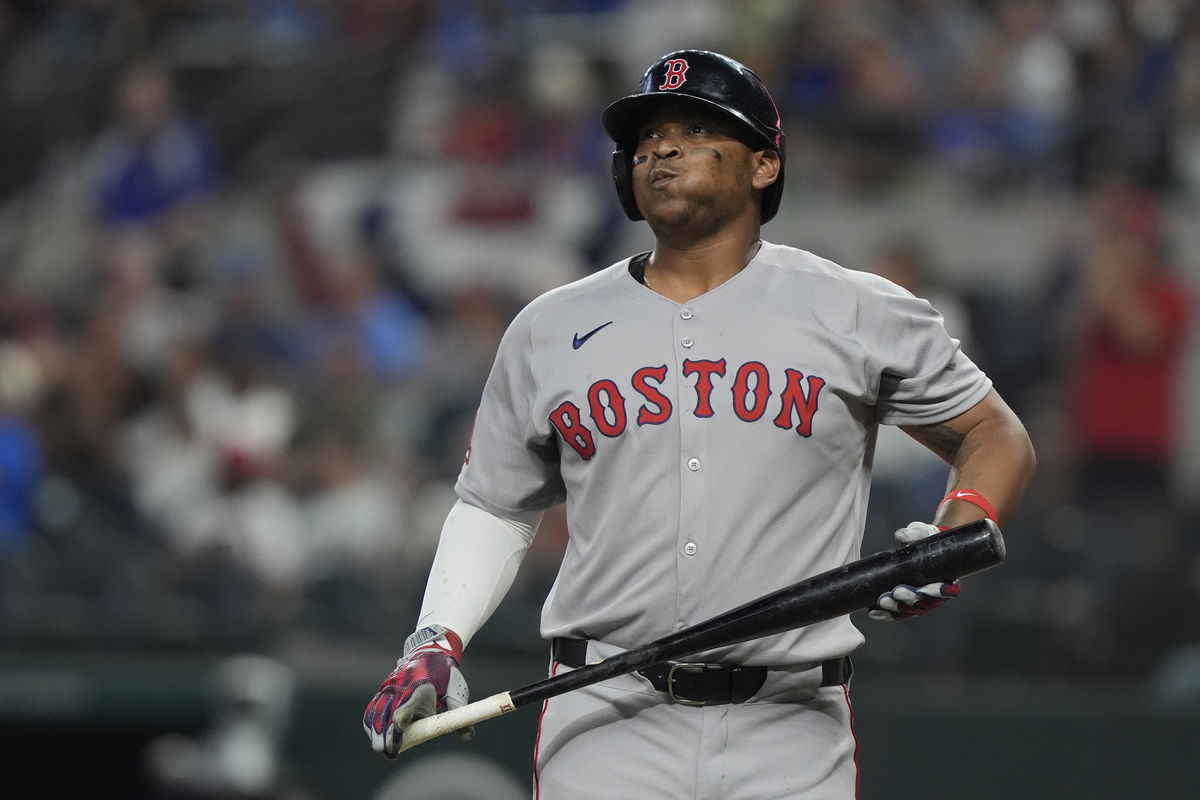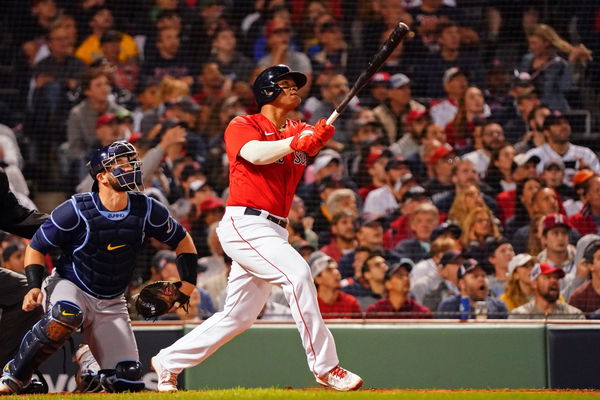



On Sunday, the air at Fenway Park was electric. The Boston Red Sox had just completed a sweep of their archrival, the New York Yankees. It was their seventh victory in eight games, a surge of momentum that seemed like a sign that something was about to happen. The fans were abuzz, feeling as if their team had finally turned a corner. But as the cheers died down, the joy was cruelly yanked from them. Then came the headline that rattled Yawkey Way to the West Coast and left the heart and soul of a franchise and its fans asking one sickening question: Why?
Watch What’s Trending Now!
This sudden turn of events took place on June 15. The Red Sox announced they had traded star slugger Rafael Devers to the San Francisco Giants. In exchange, Boston got back a package featuring the pitchers Jordan Hicks and Kyle Harrison, and two other prospects. It was a dizzying blow to Red Sox Nation. Their team, holding a 37-36 record and finally above .500, had just traded its best hitter. This move didn’t just alter the lineup; it cast a long, dark shadow over the organization’s immediate future and plans.
This move immediately fueled rampant speculation across social media and talk shows. Ringer founder Bill Simmons gave the theory, noting that the Red Sox are owned by John Henry, who also owns the Premier League soccer giant Liverpool FC. Simmons posted a screenshot of reports of Liverpool’s record-breaking £116 million deal for German star Florian Wirtz and a single-worded caption: “Hmmmmm.” The meaning was obvious, and he even later added, “It’s a shocking Devers trade… but can you really be shocked it happened? These owners had already revealed who they were.” Then, suddenly, trading the star slugger seemed more like a corporate reshuffling of assets and less like a baseball move.
The theory caught fire, fanned by the flames of fan frustration. “How the **** do you trade Rafael Devers?” podcast host Jared Carrabis fumed on X, questioning both the return and the timing. Barstool Sports founder Dave Portnoy echoed the sentiment, expressing his disgust. “If you are trying to win you just don’t trade your best hitter for nothing,” Portnoy wrote. He accused Henry and minority owner LeBron James of turning the beloved Red Sox into “the Oakland A’s with fancy hubcaps,” a damning comparison in baseball circles.
For long-suffering fans, this felt like a painful case of déjà vu. It brought back fresh memories of the Mookie Betts trade in 2020. Betts, a homegrown MVP, was traded to the Dodgers in a salary-driven move. He then won two more World Series titles in Los Angeles. This pattern of trading superstars has sown a deep mistrust about the Fenway Sports Group’s interest in winning. And the Devers deal looks like even more evidence that history is repeating itself in Boston.
But beneath the surface of another blockbuster trade, there were deeper cracks forming—ones that money alone couldn’t explain.
Rafael Devers vs. the Red Sox front office
But was this strictly a financial decision, or had the clubhouse already become toxic? The tension between Devers and the front office was no secret this season. It all started in spring training when the team added third baseman Alex Bregman to the roster. Devers, the team’s highest-paid player, was unceremoniously asked to become the full-time designated hitter. Despite his .272 average, 15 homers, and 58 RBIs, his defensive home was taken away, and the relationship was strained from the beginning.
The situation completely unraveled when Triston Casas, the first baseman, suffered a season-ending injury. The front office asked Devers to play first base, and he declined. He said out loud that they “should do their jobs” and find another player. Devers argued he was told to “put away my glove,” so the late request is not reasonable.

USA Today via Reuters
Oct 11, 2021; Boston, Massachusetts, USA; Boston Red Sox third baseman Rafael Devers (11) hits a three-run home run against the Tampa Bay Rays during the third inning during the third inning during game four of the 2021 ALDS at Fenway Park. Mandatory Credit: David Butler II-USA TODAY Sports
So, how do the Red Sox even begin to replace their star slugger? Manager Alex Cora now has newfound flexibility at the designated hitter spot. Masataka Yoshida, who batted .294 with 6 home runs before his injury, is a strong candidate to replace him at DH when he returns. Outfielder Wilyer Abreu, who had 13 homers before injury, also provides a powerful left-handed option.
The bigger challenge is filling the gaps and building for the future. The deal paves the way for Boston’s top prospects to make their mark. Outfielder Roman Anthony, slashing. 321 average and 7 home runs in Triple-A is expected to get the call soon. Shortstop Marcelo Mayer has already played his first game and flashed defensive versatility. That rotation enables Cora to keep the bats in the lineup while giving players needed rest.

